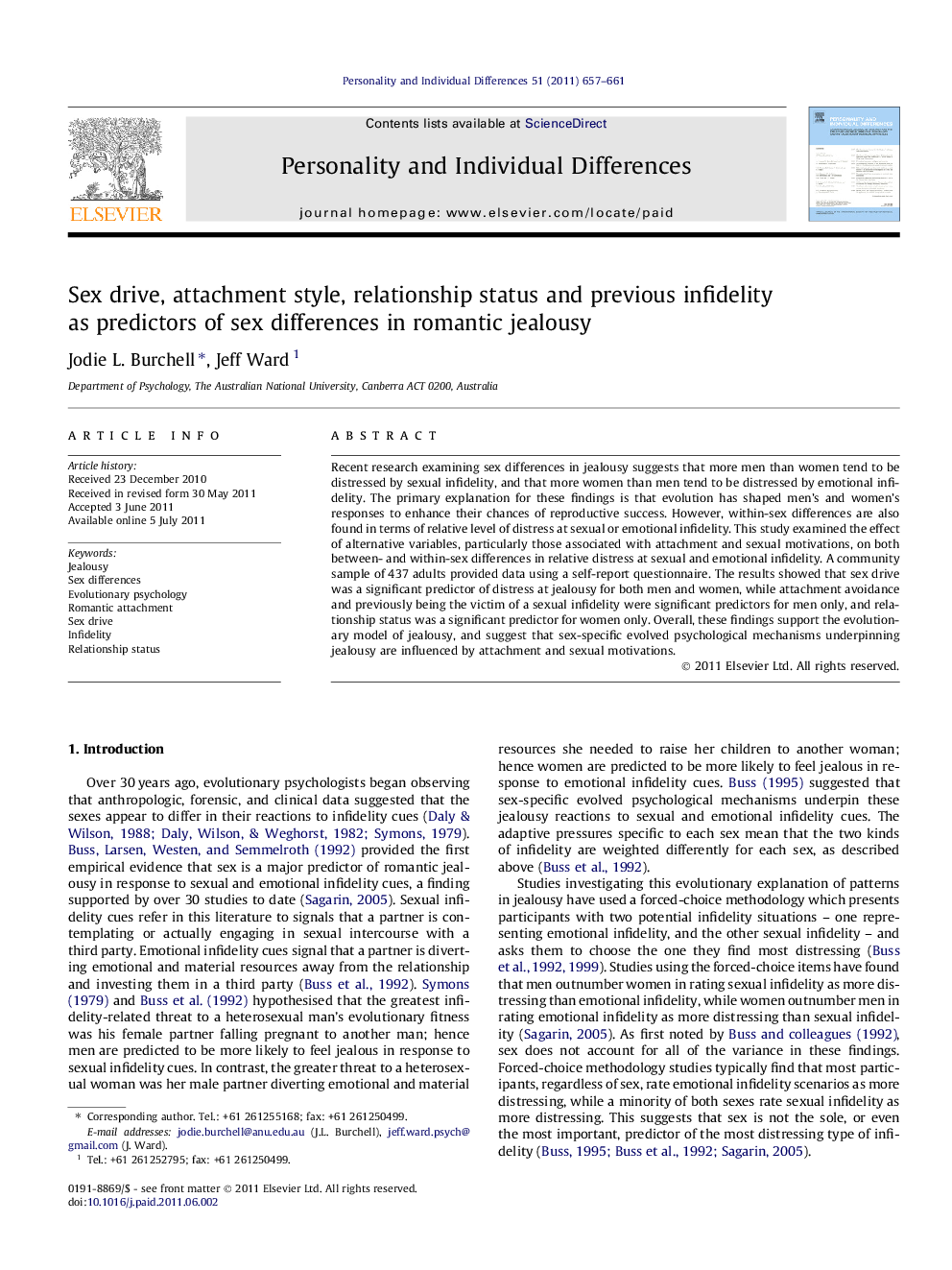| Article ID | Journal | Published Year | Pages | File Type |
|---|---|---|---|---|
| 891191 | Personality and Individual Differences | 2011 | 5 Pages |
Recent research examining sex differences in jealousy suggests that more men than women tend to be distressed by sexual infidelity, and that more women than men tend to be distressed by emotional infidelity. The primary explanation for these findings is that evolution has shaped men’s and women’s responses to enhance their chances of reproductive success. However, within-sex differences are also found in terms of relative level of distress at sexual or emotional infidelity. This study examined the effect of alternative variables, particularly those associated with attachment and sexual motivations, on both between- and within-sex differences in relative distress at sexual and emotional infidelity. A community sample of 437 adults provided data using a self-report questionnaire. The results showed that sex drive was a significant predictor of distress at jealousy for both men and women, while attachment avoidance and previously being the victim of a sexual infidelity were significant predictors for men only, and relationship status was a significant predictor for women only. Overall, these findings support the evolutionary model of jealousy, and suggest that sex-specific evolved psychological mechanisms underpinning jealousy are influenced by attachment and sexual motivations.
► Individual differences predictors of jealousy differed for men and women. ► Predictors for men were sex drive, attachment avoidance and previous infidelity. ► Predictors for women were sex drive and relationship status. ► Attachment and sexual motivations likely influence the evolved jealousy mechanism.
